By Sarah Parvini
Tens of thousands of protesters rallied outside the Turkish Consulate on Wilshire Boulevard on Sunday afternoon, waving flags and holding signs to commemorate the 101st anniversary of the Armenian genocide.
Dressed in purple and black shirts scrawled with messages calling for justice, the activists demanded reparations. Los Angeles police estimated the crowd at 60,000.
“Get your hands off our land!” they chanted.
“Eastern Turkey is western Armenia!”
“Today, we are all Armenian,” said U.S. Rep. Adam Schiff (D-Burbank) as he addressed the crowd from the stage. “We have one cause and that cause is justice.”
The crowd, filled with protesters of all ages, roared in agreement. Some carried their children on their shoulders, using the day to teach them about their history.
Abraham Arakelian, 42, came from the Valley with his son so he could keep the memory of the genocide alive.
“We want to show the youth what April 24 is about,” he said as he held a large Armenian flag overhead.
“Obviously, we want justice. If we don’t do this, it will be forgotten.”
Eventually, Arakelian said, he will tell his son more about the genocide, when he’s old enough to stomach the painful details. For now, it was enough just to bring him.
Armenians gathered for vigils last week in Glendale and in Montebello at the Armenian Genocide Martyrs Monument, and many Armenian churches hold services to recognize the fallen.
Nora Hovsepian, chair of the western region of the Armenian National Committee of America, said Armenian people will continue to gather each year until the genocide, which began in 1915 and resulted in the death of as many as 1.5 million Armenians, is recognized by Turkey and the U.S.
“It remains a crime unpunished. It is a crime against humanity, and there’s no statute of limitations on that,” Hovsepian said.
Armenians regard the tragedy that took place in 1915 as part of an organized, orchestrated effort by the Ottoman Turkish government. Historians have characterized what happened as a precursor of — and even a model for — genocides that followed, including Adolf Hitler’s systematic slaughter of European Jews and other groups decades later.
Turkey claims half a million Armenians died when they rose up against their rulers after World War I, and denies that their deaths constitute an act of genocide.
That position conflicts with the views of most historians of the period, who agree that Armenians were victims of genocide. A number of countries have issued statements over the years condemning Turkey’s actions as genocide.
President Obama referred to the deaths as genocide before his election, but he has not done so since he took office. The move maintains his predecessors’ reluctance to alienate Turkey, a highly valued ally in the Middle East.
Still, more than 40 states — including California — have recognized the genocide, according to the Armenian National Institute.
“We’re not asking for much,” said Anasheh Megerdichian, 31, as she stood with a group of friends near the Turkish Consulate. “We want them to admit what they did.”
Megerdichian said she wasn’t surprised that Obama did not call the deaths a genocide, but she was disappointed. She understands the president made the decision for political reasons, she added, but wishes he had never promised to call the massacre a genocide in the first place.
“He went back on his word,” she said.
Southern California is home to the largest Armenian community outside of Armenia, with Los Angeles seen as a kind of Armenian cultural mecca. More than 200,000 people of Armenian descent live in Los Angeles County, according to U.S. census data.
The county remains a point of entry for Armenian immigrants and each year, as April 24 approaches, locals drape Armenian flags over the hoods of their cars, wave them from their car windows and hang them from their businesses.
Most stores post signs in both English and Armenian telling customers they will be closed in remembrance of the genocide.
Last year, officials designated the intersection of Hollywood Boulevard and Western Avenue as Armenian Genocide Memorial Square, an area that is part of Little Armenia. And in March, Glendale Unified became the first school district in the country to establish a day in remembrance of the genocide.
Remembering the genocide is also a part of the curriculum at some schools in Glendale, where many of the county’s Armenians live. Schools teach units and hold assemblies on the genocide in the weeks leading up to the anniversary.
Morris Sarafian, a student at UCLA, said the 101st anniversary marks a pivotal time for the Armenian community.
“There is not a statute of limitations on our demands. It’s not contingent on a deadline,” the 21-year-old said. “This is our unapologetic way of saying you are not going to get away with this.”
Sarafian, whose great grandfather was a survivor of the genocide. said he learned about the killings and their consequences when he was a little boy.
“At 9, my grandfather had to bury his own twin sisters,” he said. “They were his younger sisters.”
Such stories – handed down from generation to generation – leave a lingering sense of trauma, he said.
“I shouldn’t have to validate my own history,” Sarafian said. “ This is a lived experience.”
Mikael Matossian, 21, can also trace his family back to the genocide. His grandfather was a survivor who fled the city Aintab and found refuge in a Turkish farmer’s home.
Eventually, he emigrated to America.
Matossian said the stories his grandfather told him influenced his decisions to participate in the Armenian Student Assn. at UCLA, as well his desire to protest for recognition.
“I spent 15 years of my life with him,” Matossian said. “That is what drives me and a lot of young Armenians to protest. It’s very real to us.”
Source: Los Angeles Times

Recent Comments